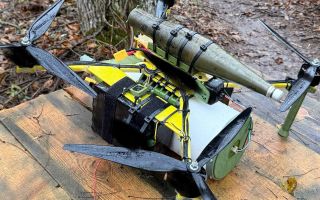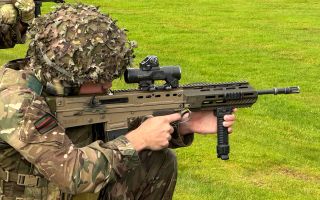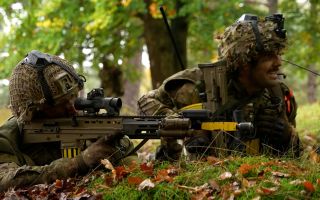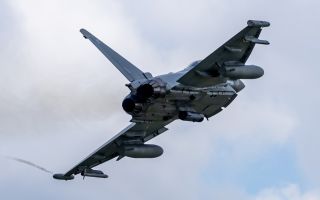Fuelling the fear: Maritime expert warns of rising Russian naval activity in UK waters
Russian naval incursions are part of a broader strategy to "instil fear and uncertainty" within the British public, a leading maritime expert says.
Speaking to BFBS Forces News, Basil Germond, Professor of International Security at Lancaster University, and a fellow at the Royal Navy strategic studies centre, warns that the UK and Nato must be credible in their efforts to expose the incursions.
He also said the recent passage of several Russian vessels through UK waters reflects elements of hybrid and psychological warfare.
While hybrid warfare is not a new concept, the more unconventional methods of cyber warfare, disinformation and economic coercion have developed significantly in recent years, shaped by technological advances and changing geopolitics.
These tactics blur the line between peace and war – known as the grey zone – and can serve as a precursor to conventional armed conflict.
Smoke and mirrors
Earlier this year, a Times investigation revealed that Russian ships had been seen in UK waters 40 times since the 2022 Ukraine invasion.
It found that at least seven of those were specifically targeted by UK or US sanctions, and a further 10 were linked to sanctioned oligarchs and military operations.
Amid a backdrop of heightened tensions on Nato's eastern flank, following recent Russian drone incursions in Estonia and Poland, and a suspected incursion in Denmark, these transits have begun to draw increased attention and security.
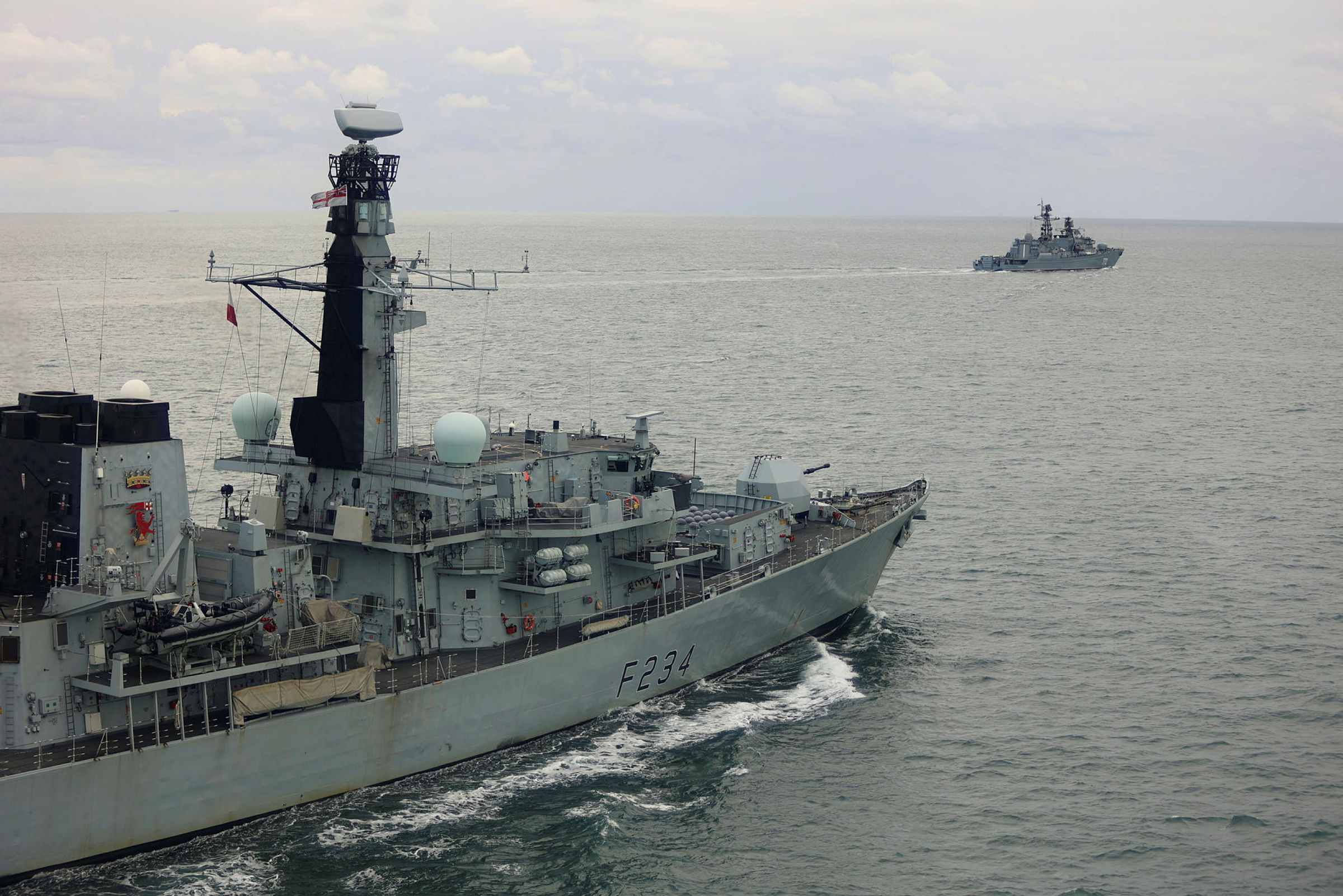
Last month, HMS Iron Duke and a Wildcat helicopter tracked the heavily armed Russian warship RFN Neustrashimy as it escorted cargo ship Sparta IV through the North Sea and the English Channel.
It marked the eighteenth time the Type 23 frigate had been deployed on a mission of this type in the past 12 months, during which it monitored a total of 25 Russian vessels.
Prof Germond believes the message from Moscow is clear.
"It's to say, we can operate in your backyard, and we are ready to operate at the boundary between war and peace in your backyard, because it's a strong political statement," he explained.
But he argues the intent is even more "perverse" than that.
"One of the objectives is to instil fear and uncertainty within the British public. It's this strategy of trying to destabilise society, to create divisions and uncertainties.
"It's not just directed at the critical infrastructure or at UK defence. It's also directed at British society as a whole."
The Salisbury poisoning in 2018 – a failed assassination attempt targeting Sergei Skripal, a former Russian military officer and British double agent, perhaps marked the first instance of hybrid warfare manifesting itself on UK soil.
Russia vehemently denied the allegations that it was involved and would later spread a campaign of misinformation that looked to chip away at any Western notion of truth.
More recently, Sweden's allegations of Russian GPS jamming in the North Sea and suspected plots to smuggle incendiary devices onto US-bound aircraft highlight a strategy to sow fear, uncertainty and division across Europe, while avoiding all-out war.
Beneath the waves
The maritime environment is particularly prone to hybrid warfare because "jurisdictions overlap and because it is difficult to control and monitor vast expanses of water", noted Germond.
Under the United Nations Convention on the Law of the Sea (UNCLOS) – the legal framework governing activities in the world's oceans and seas – foreign powers are permitted to operate in UK waters according to international law, provided it is a benign passage.
These passages must be continuous, expeditious, and not prejudicial to the peace, good order, or security of the coastal state.
Russia, as a signatory to UNCLOS, must abide by this convention.
"The problem is that, in theory, a warship or even a civilian ship operating for a state might be collecting intelligence," Prof Germond explained. "But it doesn't break the rules of international law."
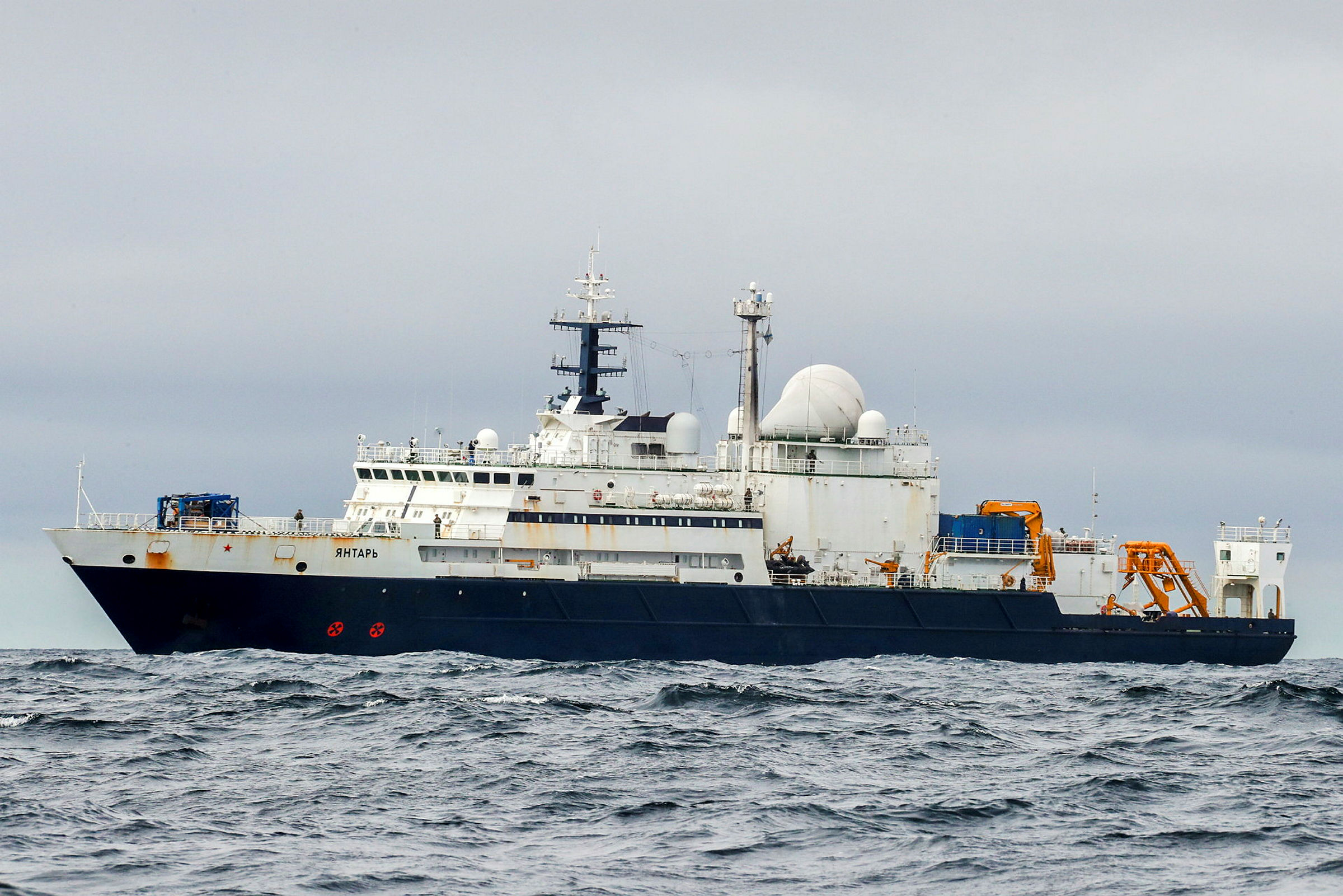
Earlier this year, Yantar, believed to be used by the Russian Navy for intelligence gathering, was shadowed by HMS Somerset and HMS Tyne after it was detected loitering over the UK's critical undersea cable infrastructure, 45 nautical miles off the British coast.
Such incursions fall somewhere between strategic posturing and something "more sinister", said Germond. Such activities, such as mapping critical infrastructure, could be part of preparations for future attacks.
Defence Secretary John Healey described the presence of Yantar as "another example of growing Russian aggression", while Moscow maintained the vessel was simply conducting oceanic research.
Defence in the grey zone
It is this form of plausible deniability that highlights the challenge of attribution – a common difficulty in this new era of hybrid warfare in the grey zone.
According to Germond, a key priority for the UK and Nato should be to devise strategies to defend against such threats, and to understand that the best possible defence is prevention and deterrence.
He emphasises the principle of 'in flagrante delicto', Latin for 'caught in the act', is key.
"In this kind of grey zone dynamic, the malign actors, the foreign powers, prefer that they can deny their involvement.
"When you can, spot the perpetrator when they are doing their illegal activity, and name and shame them," he said.
Therein lies the value in Royal Navy vessels continuing to shadow their Russian counterparts – it prevents Moscow from operating with the level of grey zone deniability that has become their preferred modus operandi in the era of modern warfare.

